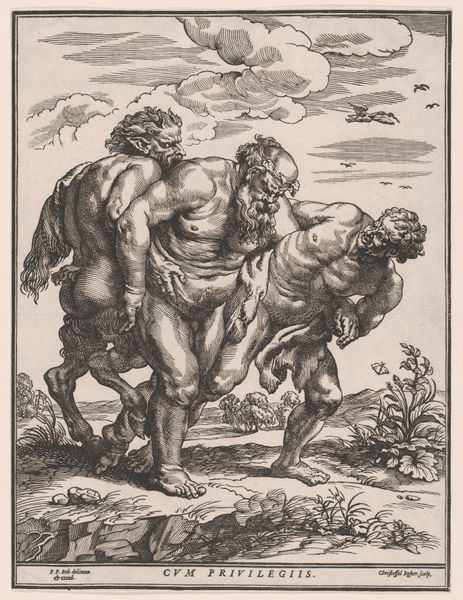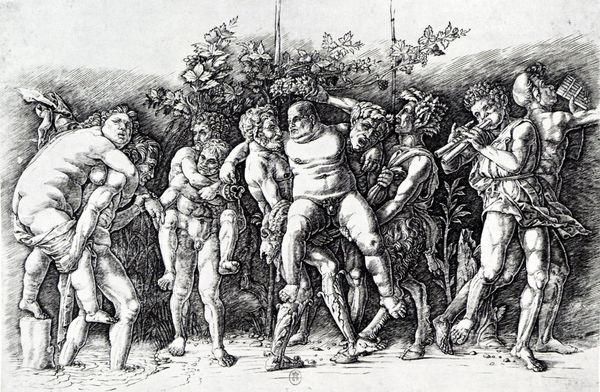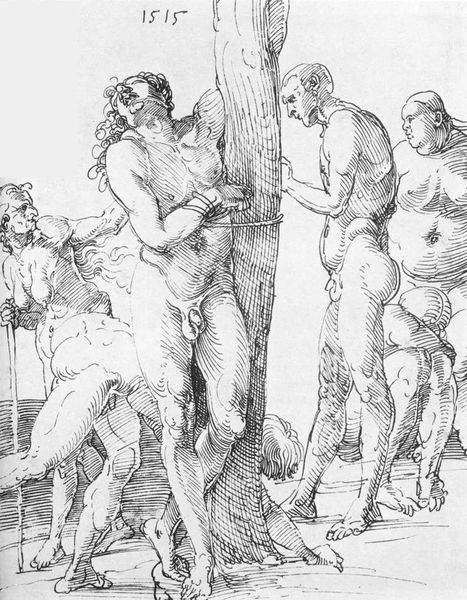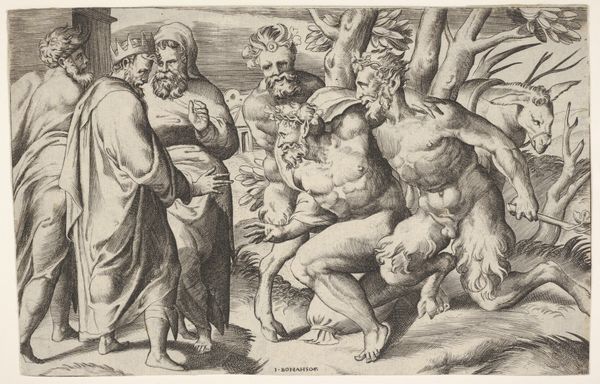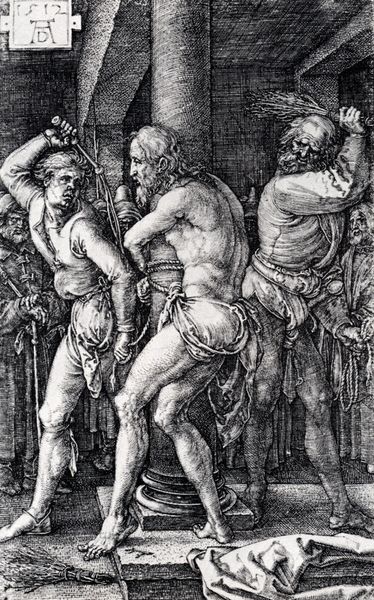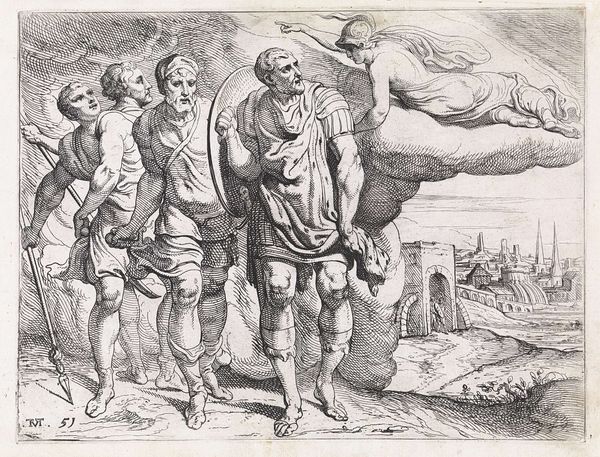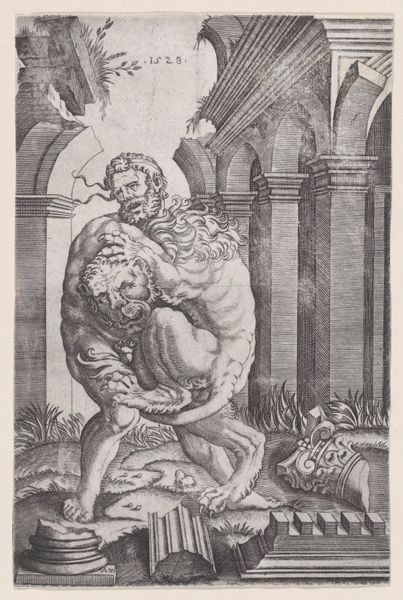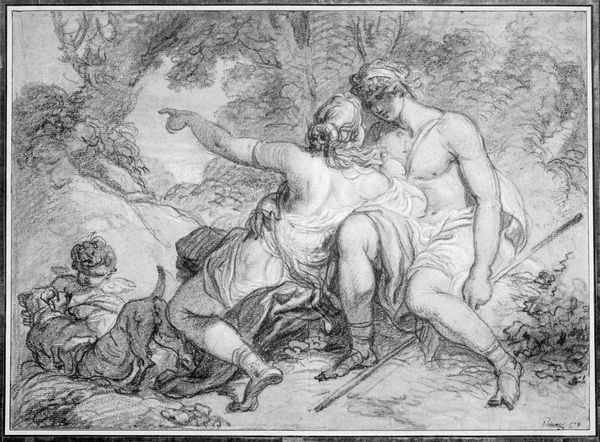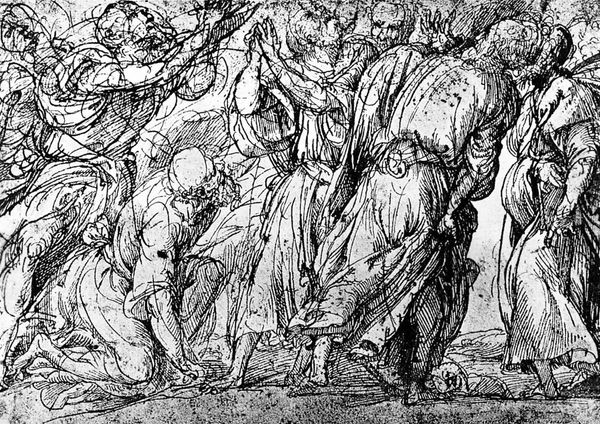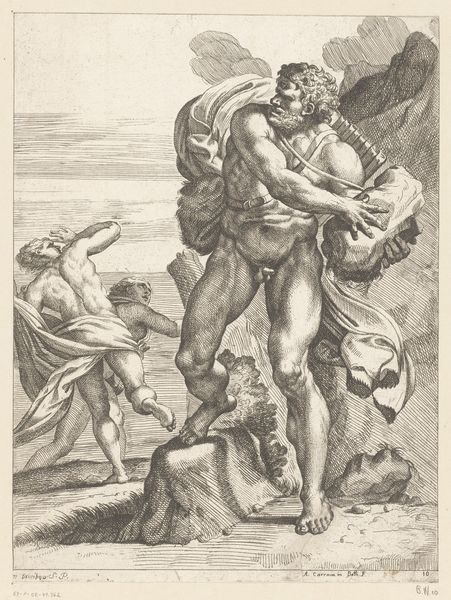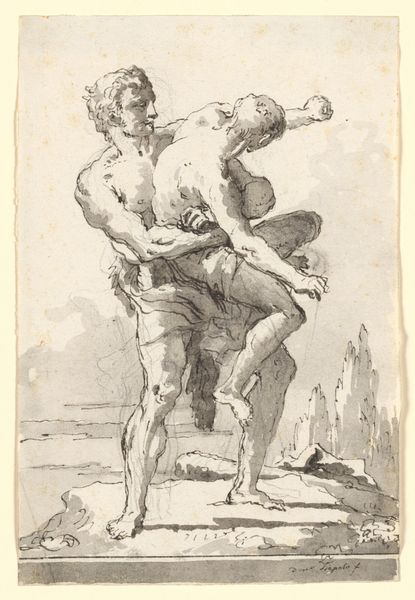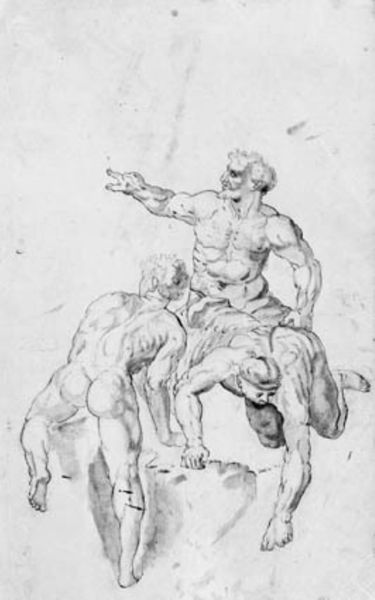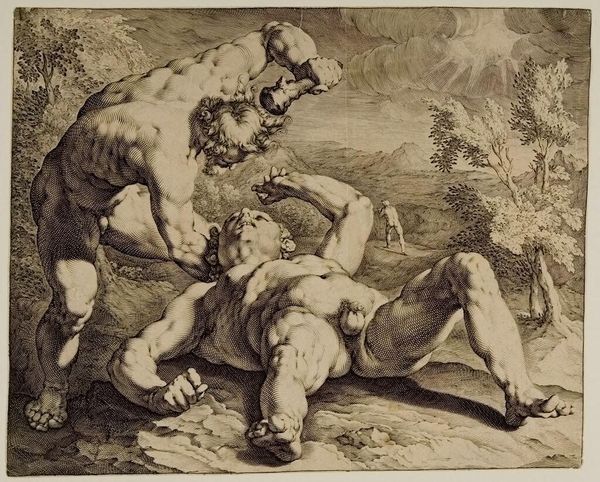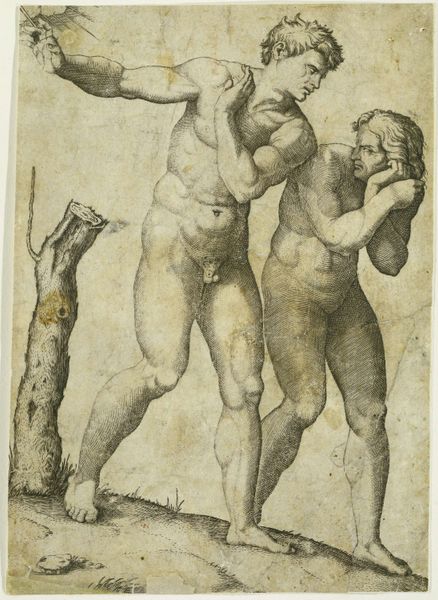
pen, engraving
#
baroque
#
pen sketch
#
figuration
#
pen-ink sketch
#
mythology
#
human
#
pen
#
engraving
Dimensions: 38 x 27 cm
Copyright: Public domain
Peter Paul Reubens created this pen and ink drawing, Silenus (or Bacchus) and Satyrs, sometime in the early 17th century. The drawing depicts a scene from classical mythology; Silenus, the tutor and companion of Bacchus, god of wine, is being supported by satyrs, woodland creatures known for their revelry. Rubens, a Flemish artist, was deeply influenced by classical antiquity and the Italian Renaissance. His work frequently drew on classical mythology and history, reflecting the humanist interests of the period. In his time, artistic training was rooted in the study of classical forms and narratives. Artists were expected to demonstrate their knowledge of these traditions. Consider how the visual codes of the time contributed to the creation of meaning. The figures are rendered with a dynamic energy typical of the Baroque style, a style promoted through the patronage of powerful institutions, such as the Catholic Church. Rubens himself was a court painter, comfortable among the aristocratic elite. To fully appreciate the drawing, one can consult a variety of sources, from classical literature to studies of the artist's life and times. By examining the social and institutional context, we gain a richer understanding of the artwork.
Comments
No comments
Be the first to comment and join the conversation on the ultimate creative platform.
